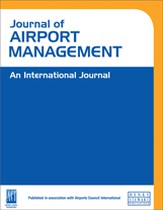Flight departure delay forecasting
Abstract
The most accurate methods to predict delays have become essential to mitigate their generation and proliferation (and prevent their spread to other airports in the network). Given that both the delay time dependence function and the input variables on which it depends are not fully known, the objective of this research is to predict the delays in the departure of scheduled commercial flights through a methodology that uses predictive tools based on machine learning/deep learning (ML/DL), with supervised training in regression, based on the available flight datasets. The novel contribution of this work is, first, to make a comparison of the predictions in terms of means and statistical variance of the different ML/DL models implemented (ten in total) and, secondly, to determine the coefficients of the importance of the features or flight attributes. Using ML methods known as permutation importance, it is possible to rank the importance of flight attributes by their influence in determining the delay time and reduce the problem of selecting the most important flight attributes. The data for the analysis was obtained from the Colombian airport system for the year 2018. From the results obtained, it is worth mentioning that the model that presents the best performance is the Ensemble, or combination method of Random Forest Regressor models, configured with 2,000 trees within the forest, with an acceptable prediction range measured with the root-mean-square-error (RMSE) metric of 16 to 33 minutes (prediction of time of the flight departure delay) depending on the scenario analysed.
The full article is available to subscribers to the journal.
Author's Biography
Juan Gerardo Muros Anguita is an aeronautical engineer (Polytechnic University of Madrid, Spain), has an MBA from the Instituto de Empresa, Spain and a Master's in Astronomy and Astrophysics from Valencia International University, Spain. He is a PhD in Astrophysics candidate at Universidad de Granada, Spain.
Oscar Díaz Olariaga has a PhD in Aeronautical Engineering (Polytechnic University of Madrid, Spain) and a PhD in Economics and Business Administration (UNED-University, Spain). At present, he is a consultant in air transport, civil aviation and airport engineering in Spain, Canada and Colombia and currently serves as a professor and researcher at several universities in Spain and Colombia.
